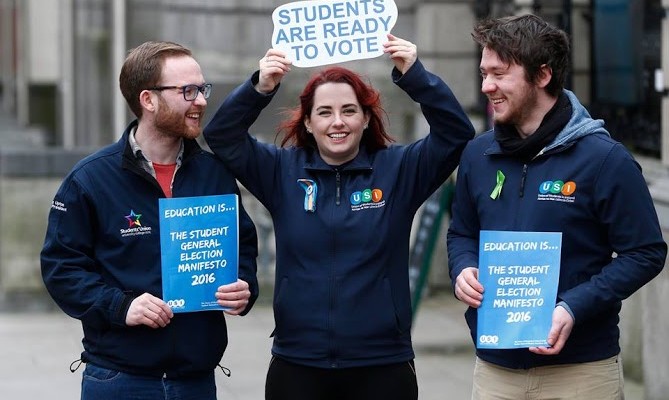
Hoey was voted in by delegates from students’ unions across the country at USI Congress 2016 which is being held in Ennis, Co. Clare, from March 21 to March 24.
Reacting to the win in a Facebook post on her campaign page, Hoey said: “I really am so very honoured to have been elected USI President for the 2016/17 term. Thank you so much to everyone who supported me, and to all the students who voted for me. I’m incredibly excited to be working with an excellent team next year. I hope we do all of our members proud and our work reflects the hearty debates we are having at Congress this week.”
Speaking to Trinity News in February, Hoey, who ran uncontested for the role, outlined some of her plans.
She highlighted higher education funding as the number one priority should she be elected, adding that, amidst the possibility of income-contingent student loans, figuring out “where the money is going to come from” and holding the government accountable to “quality assurance” on any prospective plans for funding would be key.
Asked about what she perceived to be the most challenging undertaking in mediating between student and government interests, she stated that the sheer scale of the task feels, at times, “insurmountable… like an avalanche.” However, she said that USI’s most powerful force is the fact it has “student movement as [its] backbone.”
By engaging and activating students on the ground, getting their point across on boards, “[where] you don’t hear the word student mentioned for two hours” at times, becomes a far louder and a far more potent intention, she said. She was adamant that she would never accept any result from negotiations that did not have the best outcome for students at its core.
According to Hoey, having experience of working on multiple USI and student-run campaigns, such as Students Against Fees, Yes Equality and Pink Training, means that she will be strongly orientated towards fostering civic engagement.
Hoey outlined that student activism, citing the Students Against Fees movement, is “something [she] want[s] to nurture.” It will be crucial for the upcoming resistance against the introduction of loan schemes: “[We] don’t believe that there should be fees. Education is a public good,” she stated, adding that public opinion has moved to support this, with many feeling that fees do not “encourage progression from second- to third-level education.”
Having mobilised many students for the Yes Equality campaign, Hoey claimed that the movement has politicised and engaged students and that the hunger for “social change” incited in students would only work to benefit the Repeal the Eighth campaign, should a referendum be called: “It will be a different kind of campaign… It won’t be [mobilised] on one side, but it won’t be a 50/50 split,” she said, citing recent figures released by USI that 85% of students want to back the campaign.






